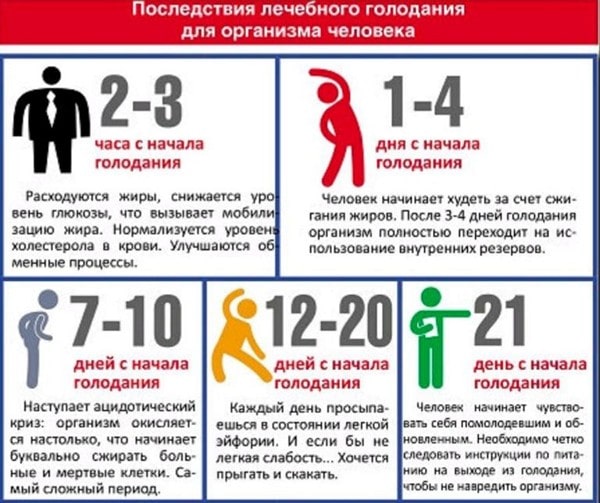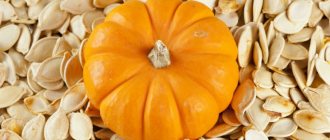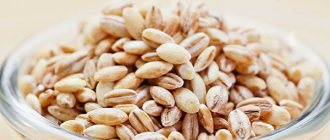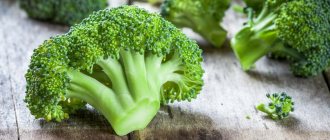During the “hungry” period, the body receives substances from its own reserves - mainly due to the breakdown of fats. This treatment is used for many diseases of internal organs, including gastritis.
In what cases is it advisable to use it and is every gastritis amenable to such therapy? Let's deal with all the doubtful points in order.
Types of fasting
Fasting can be more or less strict and is carried out according to one of the following schemes:
- Complete hunger is a ban on eating any food; you are only allowed to drink water without additives.
- Absolute, “dry” fasting is the exclusion of not only food, but also water from the diet. Its duration should not exceed 3 days.
- Combined – consists of alternating regular and absolute fasting.
- Fractional – periodically conducting several fasting and dietary courses in a row.
- Staged fasting is similar to fractional fasting, but in this case the periods of abstinence from food are shortened.
In medical practice, various options for complete fasting are most often used, including fractional and stepwise fasting. “Dry fasting” is necessary only for patients with severe edema, bronchial asthma, allergic phenomena, and skin diseases.
What are the benefits of fasting?
Many alternative medicine specialists advise using fasting for a variety of pathologies. They justify its benefits for gastric ulcers as follows:
- in the absence of food in the gastrointestinal tract, it is most unloaded functionally, “resting” and therefore, since there is no need to digest food, the body redirects its forces to restoration and cleansing;
- During fasting, toxins are neutralized and removed from the body.
But is everything really as rosy as it is described?
What if, instead of improving the health of the whole body, there is an exacerbation of peptic ulcer disease or the development of its complications?
Indications and contraindications
Fasting and dietary therapy is indicated not only for the treatment of gastritis. It applies in the following cases:
- high blood pressure;
- cardiac ischemia;
- bronchial asthma, chronic bronchitis;
- functional disorders of the gastrointestinal tract;
- inflammation of the pancreas, intestines;
- obesity;
- uncomplicated liver diseases;
- infertility;
- skin diseases;
- allergies;
- mental illness;
- pathology of the musculoskeletal system.
In this case, it is necessary to take into account the severity of the disease, the presence of concomitant pathologies and the ongoing drug treatment.
Peculiarities. In particular, if the patient receives systemic therapy with hormonal drugs - glucocorticoids - for asthma or joint diseases, then complete fasting is contraindicated for him. This is due to the negative effect of these hormones on the gastric mucosa.
Fasting is absolutely contraindicated for:
- weight deficiency;
- endocrine diseases of the adrenal glands, thyroid gland, pituitary gland;
- rheumatism;
- malignant neoplasms;
- active tuberculosis;
- nonspecific ulcerative colitis, Crohn's disease;
- active hepatitis;
- severe renal or heart failure;
- purulent processes in the abdominal cavity;
- increased blood clotting;
- arrhythmias;
- previous heart attack or stroke;
- pregnancy and lactation;
- aged less than 10 and more than 75 years;
- epilepsy.
In addition, starvation treatment is not carried out if the diagnosis is in doubt. In each case, the decision on the possibility of fasting is made individually, taking into account the entire range of indications and contraindications.
Is it worth using fasting for gastritis?
Doctors say that hunger is one of the components of the treatment of acute gastritis, but it is impossible to do without preliminary preparation. If the pathology is caused by poisoning or an infectious disease, then taking medications is necessary before fasting.
In this case, the doctor prescribes a strict fast using only drinking water. Such fasting is usually carried out for 24 hours, after which a light diet is prescribed.
Fasting is advisable for the following reasons:
- To alleviate the condition of acute gastritis, when toxins may remain in the gastric mucosa.
- To speed up the recovery of the gastric mucosa.
- After the release of toxins, natural recovery mechanisms will begin in the body, and this will speed up the process of treating gastritis.
Therapeutic fasting for various forms of gastritis
In case of acute inflammation of the stomach and in the active stage of the chronic process, complete fasting is necessary.
It is usually prescribed for 1-3 days, depending on the severity of symptoms and the speed of their regression. During this period, you are only allowed to drink still water and drug treatment is carried out at the same time. After the condition has stabilized, vegetable purees, mucous soups, and jelly are introduced into the diet. The diet is expanding gradually.
In case of chronic hyperacid and erosive gastritis, long-term fasting is contraindicated. This is due to the corrosive effect of hydrochloric acid on the mucous membrane. If, with gastritis with high acidity, food does not enter the stomach, then it begins to digest its own walls.
Normally, against the background of hunger, gastric secretion decreases. However, in the presence of gastritis, basal secretion is also increased, occurring without an irritant. This means that acidity levels will still not return to normal without appropriate drug treatment.
Therapeutic fasting is practiced for chronic atrophic, hypo- and anacid gastritis. In this case, it normalizes the motility of the digestive tract, allows you to slightly increase the pH level and relieve inflammation from the gastric mucosa due to its functional rest. Usually complete fasting is prescribed, the duration of which is very variable and depends on the general condition of the patient.
Important! Absolute fasting for gastritis is not practiced, since the inflammatory process may intensify against the background of insufficient fluid intake.
If a Helicobacter pylori infection is detected in a patient, eradication therapy is first carried out.
Is it possible to fast if you have a stomach ulcer?
The answer to the question of whether and how to fast if you have a stomach ulcer is ambiguous. The fact is that it is impossible to predict how the body of a particular person will react to the cessation of the supply of vital substances - proteins, fats, carbohydrates, vitamins and microelements.
The opinion that organs will “rest” when their owner refuses food is far from the truth. The body is an automatic system that is constantly in motion, biochemical processes are constantly occurring in organs and tissues, which are united and controlled by a single neuroendocrine system.
Further, it has been established that one of the causes of ulcers is neuropsychic stress. The feeling of hunger is inherent at the level of instincts, and its dissatisfaction leads to a stressful situation.

Another important “debunking” of the benefits of fasting for ulcers. Those who promote it claim that since food does not enter the oral cavity and stomach, it means that acid and pepsin are not produced, and this creates conditions for healing. Actually this is not true. The secretion of gastric juice occurs automatically and constantly, making it “understand” that the body needs to eat in order to live.
We must not forget that the digestion process is regulated by the cerebral cortex, and various associations associated with food intake can arise in it. For example, just the memory of a favorite dish, and even on an empty stomach, is a powerful stimulus for the production of acid, which means an exacerbation of the ulcer and increased pain.
How to prepare for fasting-dietary therapy
When planning a course of therapeutic fasting, you first need to make an appointment with a doctor to carry out the necessary diagnostics. Without tests and other diagnostic procedures, you cannot start fasting with gastritis. An indicative list of necessary examinations is as follows:
- general blood analysis;
- biochemical blood test (liver tests, total protein, glucose, cholesterol and other parameters as indicated);
- general urine analysis;
- feces on worm eggs;
- ECG;
- FGDS with pH-metry;
- Ultrasound of the abdominal organs;
- fluorography.
Depending on the results obtained, the doctor determines whether fasting-dietary therapy is indicated for the patient and whether there are any restrictions on its use.
Then they choose a method of fasting and plan its duration. An important point is to resolve the issue of the conditions for carrying out fasting-dietary therapy. If we are talking about short-term fasting for 1-5 days, then it can be carried out at home. If you refuse food for a long time (from a week to a month), it is recommended to go to the hospital. This will allow you to monitor both positive and negative changes in the body, and notice the risk of complications in time.
Note. When fasting at home, you still need to be examined by a specialist, especially if this is a new technique for you. You need to visit a doctor directly during the period of refusal to eat and at the stage of recovery from hunger.
Preparation
In order for fasting to pass without negative consequences, and for the procedure to be beneficial, you need to properly prepare the body for this event.
It is better to consult a doctor so that he can help identify existing pathologies, because sometimes fasting can be contraindicated.
If the patient already has gastritis, then a consultation with a gastroenterologist is necessary to assess the state of the digestive system, the performance of the gastrointestinal tract and determine the level of gastric acidity.
A sudden refusal of food is always stressful for the body, not only psychological, but also physiological. The essence of the preparatory stage is to gradually reduce the load on the digestive system.
The duration of preparation is usually about a week and consists of several stages:
- First you need to give up fish and meat, you need to eat fermented milk products, fruits, milk and vegetables all day;
- On the second day, flour should also be included in the list of exceptions, because these products are also considered quite difficult to digest;
- On the third day, you need to exclude raw vegetables and fruit crops, you can eat stewed or boiled vegetables, baked fruits, you are allowed to drink kefir and yogurt, eat cottage cheese;
- On the fourth day, you need to replace a couple of meals a day with fermented milk products, for example, instead of eating, drink a glass of kefir;
- On the fifth day, you are allowed to eat only one serving of stewed vegetables for the entire day;
- The whole next day you can only drink kefir and eat cottage cheese;
- The diet of the seventh day is limited only to kefir, and exclusively fresh, for a period of 1-2 days from the date of production.
Such a thoughtful approach will help eliminate the likelihood of complications and adverse reactions to therapeutic fasting.
Fasting period: problems and features
In most cases, with chronic gastritis, complete fasting is recommended, but drinking liquid is not forbidden. The daily water requirement is from 1 to 1.5 liters. You can drink not only still mineral water, but also rosehip decoction or weak green tea without additives. Every day, fasting patients are given cleansing enemas to avoid intoxication.
There are 3 successive stages in the fasting process:
- Food excitation is the appearance of a strong feeling of hunger. Characteristic for the first three days of treatment. In this case, a “sucking” sensation in the pit of the stomach, headaches, weakness, and insomnia occur. If the symptoms are moderate, then there is no reason to sound the alarm - this is a natural course of fasting.
- Increasing ketoacidosis is the accumulation of ketone bodies in the blood. These are products of fat metabolism, the amount of which increases under conditions of insufficient supply of nutrient substrates from outside. During this period, patients smell of acetone from their breath, and a white coating forms on the tongue. The feeling of hunger is dulled, and blood pressure levels decrease.
- Compensation for ketoacidosis . After the maximum increase in the concentration of ketone bodies, which is called the “ketoacidotic crisis,” their level begins to decline. The general condition of the body improves, the symptoms of the underlying disease decrease, the tongue is cleansed, and the smell of acetone disappears.

If the fasting-dietary therapy technique is not followed, complications may arise:
- vomiting, nausea;
- heart rhythm disturbances;
- fainting due to decreased blood pressure;
- a sharp increase in blood pressure during the withdrawal of antihypertensive drugs;
- renal or biliary colic in the presence of stones;
- formation of stomach ulcers;
- convulsions;
- uterine bleeding in patients with fibroids or endometriosis.
If “suspicious” symptoms appear, you should immediately report them to your doctor. In these cases, fasting is usually canceled.
A way out of hunger
The process of returning to regular eating should be gradual. The longer the “hungry” period was, the longer the process of adaptation of the body to food will be. It also has 3 stages:
- Asthenic , accompanied by weakness, discomfort in the upper abdomen, and rapid heartbeat. It lasts 2-3 days, when patients begin to be given fruit juices and rice water, 100-200 ml 5 times a day. This is the most dangerous period, since with a rapid resumption of nutrition (especially with the early introduction of protein foods), refeeding syndrome may develop. This condition was first described in liberated concentration camp prisoners. It manifests itself as disruptions in the functioning of the cardiovascular system: life-threatening arrhythmias, a drop in blood pressure, even to coma.
- Intensive recovery lasts approximately half of the period of complete fasting. The patient feels better and has an appetite. Liquid porridges in water without salt are introduced into the diet - millet, rice, buckwheat. After a week, you can add milk and butter to porridge, and introduce bread and fermented milk products into your diet.
- The normalization stage is characterized by the complete restoration of normal nutrition. Boiled meat, vegetables, pasta, and puree soups are gradually added to the diet. The patient’s well-being returns to normal, digestion resumes in full.
They begin to consume salt no earlier than 3 weeks after the end of fasting. Otherwise, there is a risk of persistent swelling.
In this video, doctors answer the most common questions about fasting and dietary therapy.
Fasting is a treatment method with proven effectiveness, which is successfully used for many pathologies. For patients with chronic gastritis, this method even helps to give up medications for a while. Of course, provided that further nutrition after fasting-dietary therapy is balanced and gentle.
Never try to fast on your own. A preliminary visit to the doctor and a comprehensive examination will help to avoid serious complications and make fasting as effective as possible.











